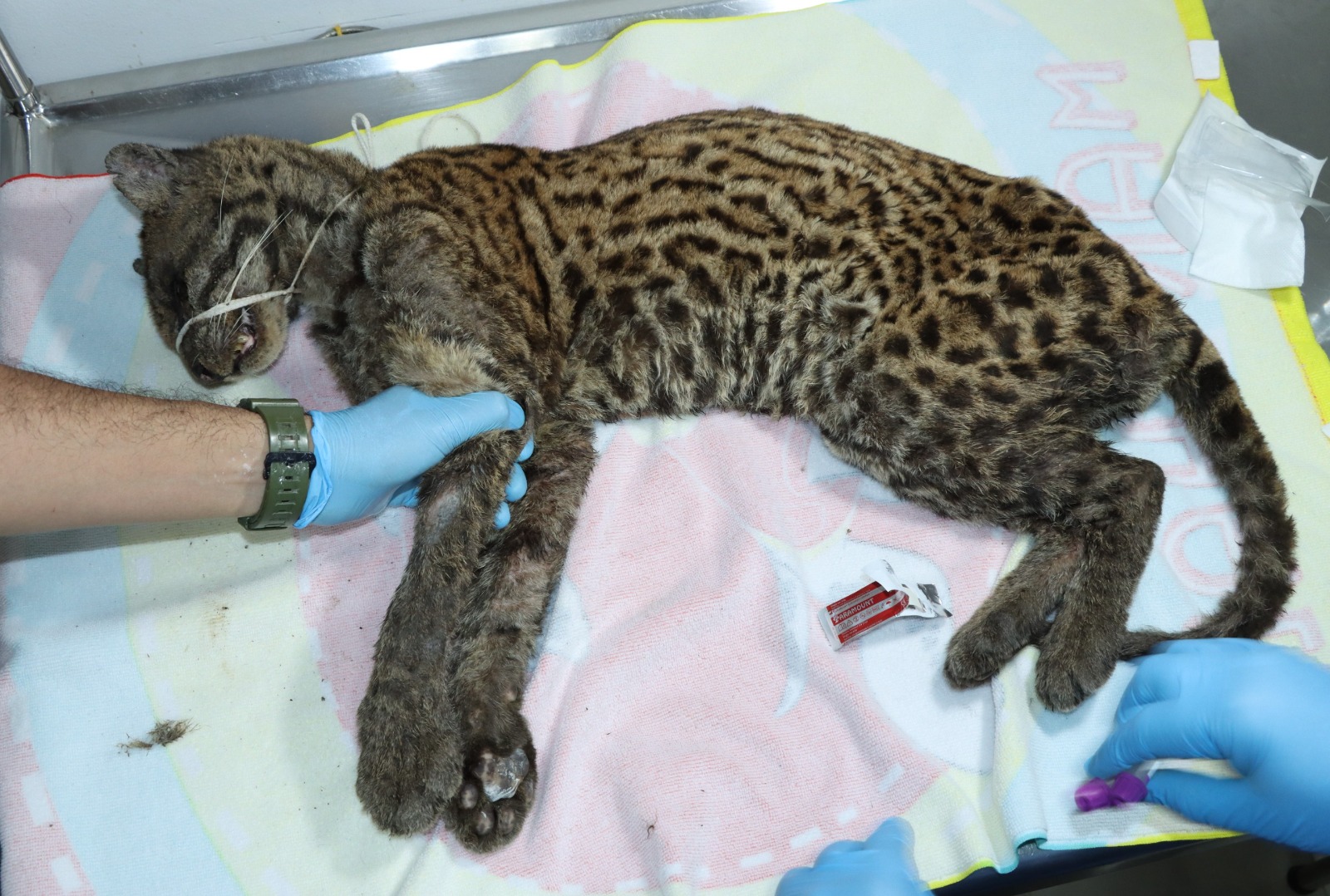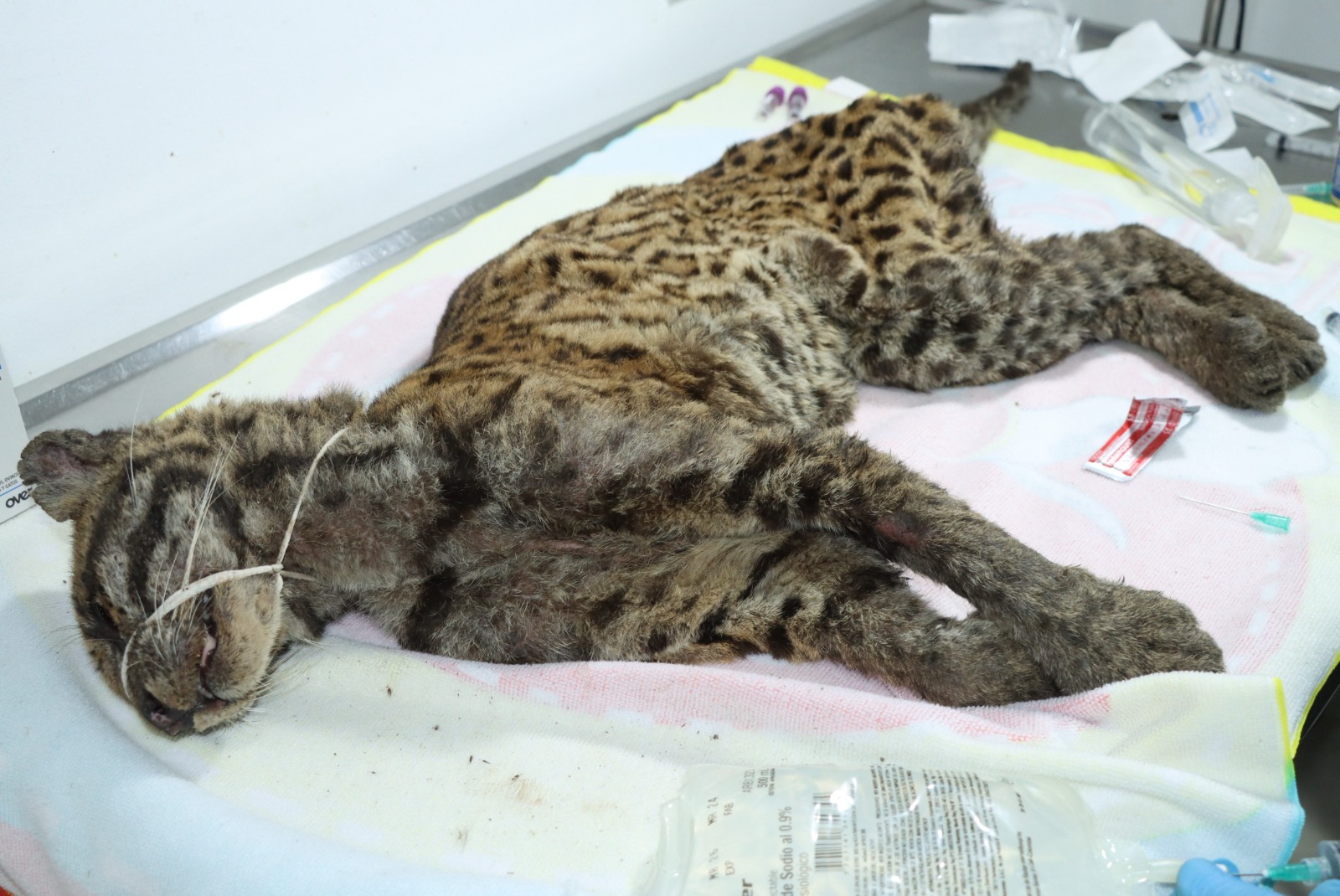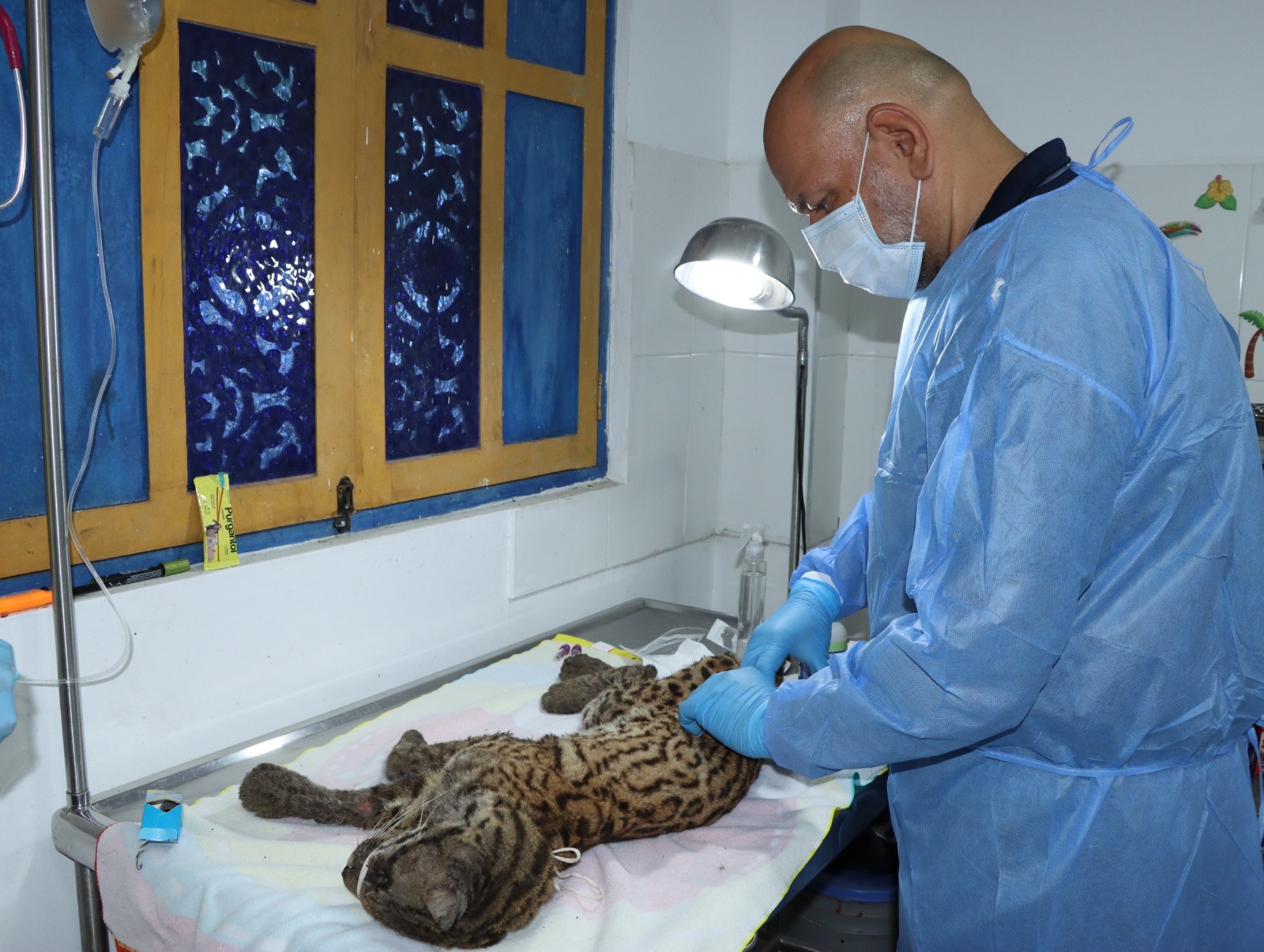Malnourished and disoriented tiger cub rescued on a road in Huila: she had apparently been kept in captivity and then abandoned.

An adult ocelot was rescued in critical condition after being found disoriented on a road in Huila. The animal, which had apparently been domesticated and later abandoned, was cared for by the Regional Autonomous Corporation of the Upper Magdalena (CAM) following a swift response from citizens and the police.
The discovery occurred on the road leading to the municipality of Gigante, where two men found the feline in the middle of the road. According to the environmental authority's report, the ocelot appeared docile and confused, signs suggesting possible prolonged captivity. The men wrapped her in a sack and took her to the police station in the municipality of Rivera, from where she was transferred to the CAM Wildlife Rehabilitation Center in Neiva.
In critical condition According to the assessment of the CAM veterinarians, the animal —an adult female of approximately six years belonging to the species Leopardus pardalis (ocelot or tigrillo)— arrived in alarming conditions.
“The tigress arrived severely dehydrated and malnourished, with dermatological problems, eye discharge, poor body condition, and missing two canines,” explained Edward Suárez, a veterinarian at the facility. He added that the feline had internal and external parasites, likely acquired through contact with domestic dogs.

The animal is receiving veterinary care while its possible return to its natural habitat is being evaluated. Photo: CAM
These signs reinforce the hypothesis that the tigress was kept as a pet, which seriously affects her health and reduces her chances of reintegration into the natural environment.
At the Wildlife Rehabilitation Center, the animal began an intensive recovery process. “We are medically stabilizing her and monitoring her progress daily. Once she recovers, we will conduct biological tests to determine if she can return to her natural habitat or if she will require relocation,” Suárez explained.
The treatment includes the administration of analgesics, antibiotics, oral rehydration solution and solid food, under strict veterinary supervision.

Environmental authorities are investigating its origin. Photo: CAM
The ocelot (Leopardus pardalis) is a species listed as endangered due to habitat loss, poaching, and the illegal wildlife trade. In Colombia, its survival is also threatened by the spread of diseases transmitted by domestic animals, such as distemper and rabies.
The CAM reiterated its call to the public to avoid the handling or illegal possession of wild animals. “There are still people who buy and try to domesticate wild animals, as is the case with this ocelot, but this causes them irreversible damage. By separating them from their natural environment, they are deprived of their freedom, their survival is jeopardized, and our biodiversity is affected,” the veterinarian emphasized.

At the Neiva Wildlife Rehabilitation Center, the ocelot is receiving intensive treatment. Photo: CAM
The environmental authority also reminded the public that the trafficking, purchase, and illegal possession of wildlife are punishable environmental crimes. Upon discovering wild animals outside their natural habitat, the CAM urged the community to immediately contact the Environmental Police or the corporation to ensure safe and professional care.
Environment and Health Journalist
eltiempo




